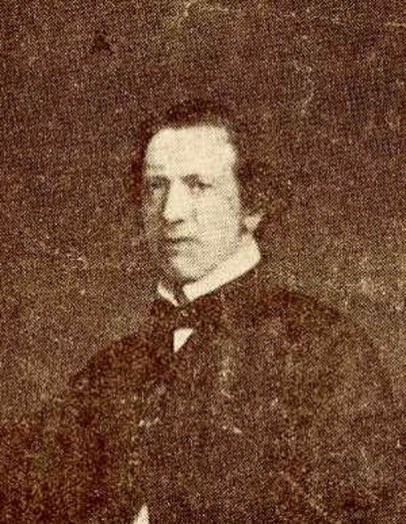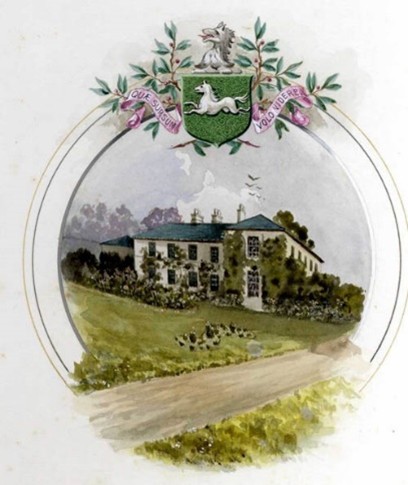
Peter Quinn JP MP (1814-1894) was born in Newry in 1814, the youngest son of John Quinn of Newry and of Drum, County Monaghan, a merchant, and his wife, Mary, whose father, William Campbell, was the Vicar of Newry. On 29th April 1835 he married Sarah Jane Erskine, the daughter of the rector of Kilbride in the diocese of Kilmore. They had four sons and three daughters. Two of their sons served in India, both with the Bengal Civil Service: John became Commissioner for Lucknow and Charles Commissioner for Bhaugalpore.
In May 1840 his appointment as a JP was announced, aged just 26, and his address was given as Acton House. He initially sat on the Tandragee Bench as Poyntzpass did not yet have its own Petty Sessions. In the early 1840s he was also an ex officio1[1] member of the Newry Union Board of Guardians, on which he served until at least 1869. He rose sufficiently high up the Co Armagh pecking order to appear on grand juries from 1850 onwards.
June 1840 newspaper adverts listed him as a member of the Management Committee for the proposed Newry, Warrenpoint and Rostrevor Railway. He also served on the committee which issued the prospectus for the Newry, Armagh and Enniskillen Railway in the autumn of 1844 and was on the Board of the Newry Navigation Company.
Drumbanagher & Acton Land Agent
We are not quite sure when Quinn became Col Close’s agent but it was probably immediately after William Blacker’s retirement in 1848. Quinn also farmed2[2] at Drumbanagher on his own account.

Sometime in the early 1850s, he vacated Acton House, and the Alexander family moved in. Quinn’s address in newspaper adverts was now ‘The Agency, Poyntzpass’ (pictured right). This was formerly known as Kilbodagh House, and is now 138 Tandragee Road, just over a mile north of Jerettspass.
By August 1852 he was Chair of the Newry Union Board of Guardians. In December 1852 he was also appointed as Agent for Roger Hall of Narrow Water Castle. As was the case with Blacker at Gosford, it was relatively common at the time for one person to be the agent for several large estates. He was still Drumbanagher agent as late as at least the end of 1880, having served for over 30 years.
In a report on the 1863 Annual Show of the D&AFS, both Quinn and his employer were praised:
“Poyntzpass…is gradually advancing in the path of progress and prosperity. The estates in connection with which the show is held are two of the many in the North of Ireland where the blessing of a kind and considerate landlord is united with the equal blessing of an attentive, courteous and humane agent…Mr Quinn MP, the popular agent, was on the ground throughout the entire day, with his usual affability and attentive kindness, superintending the proceedings.”
MP For Newry
Quinn was involved in politics from an early age. In August 1837 he was reported as one of those attending the ‘Newry Conservative Festival’. He would have been about 23. He was elected Conservative MP for Newry in 1859 but chose not to stand for a second term in 1865.
Quinn died on 5th October 1894, a very rich man by the standards of the time; his estate was valued at over £21,200. He is buried in the churchyard of St. Mary’s, Drumbanagher. In 1895, a pair of stained-glass windows commemorating him, and paid for by the congregation, were installed in the church.
- By virtue of his public position or standing; not elected. ↩︎
- See the later reports of arson against his farm. ↩︎